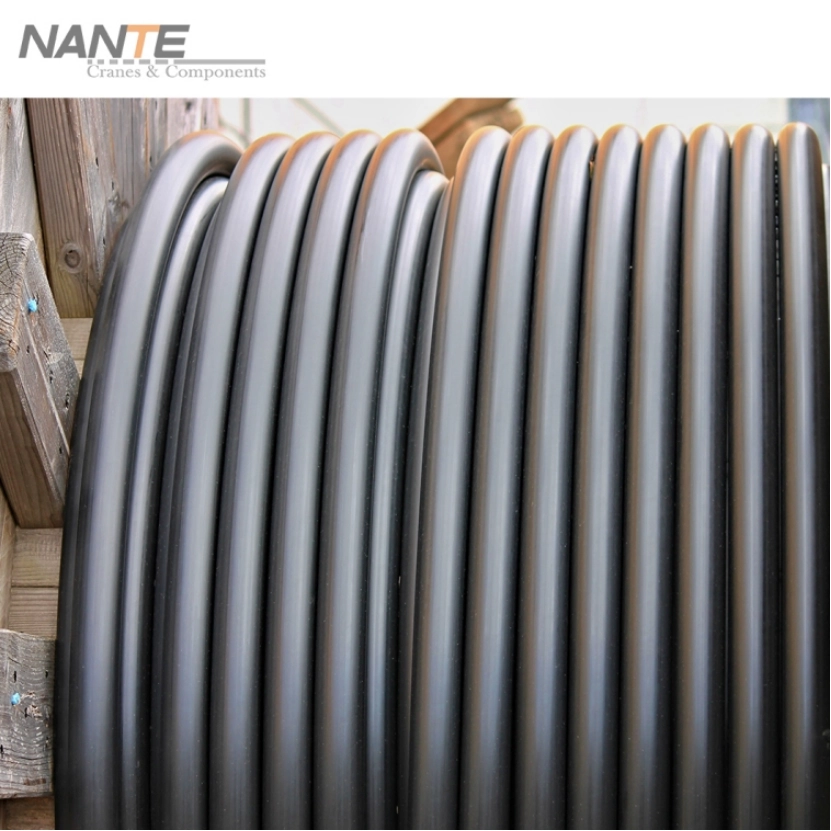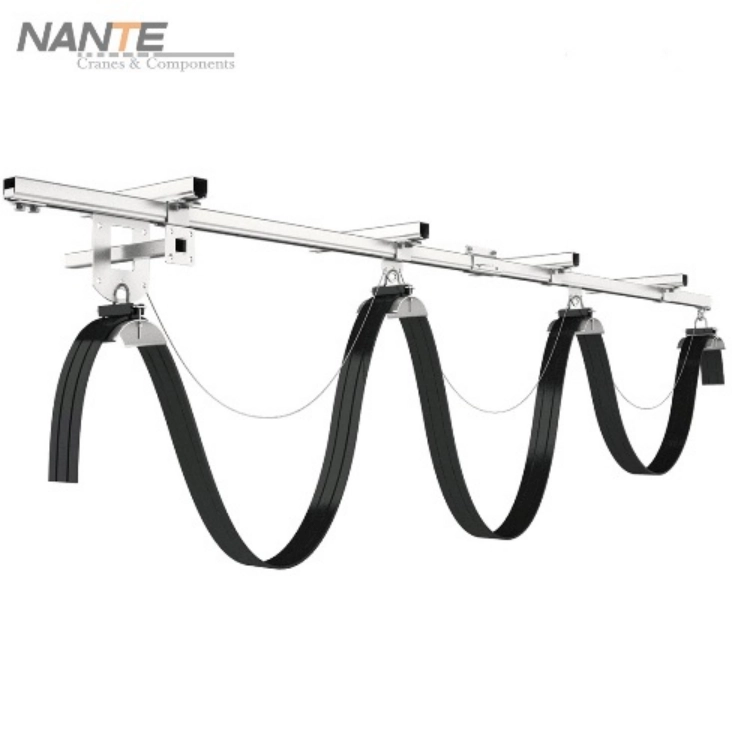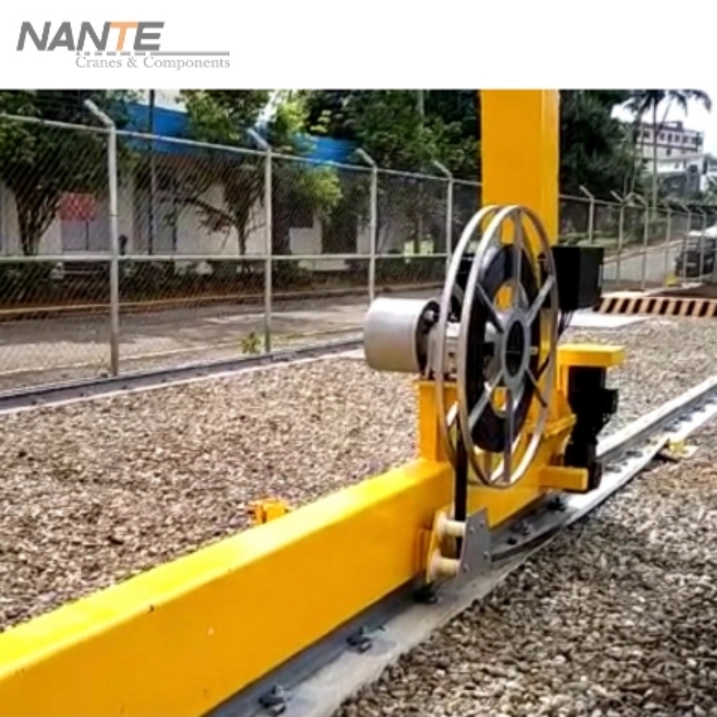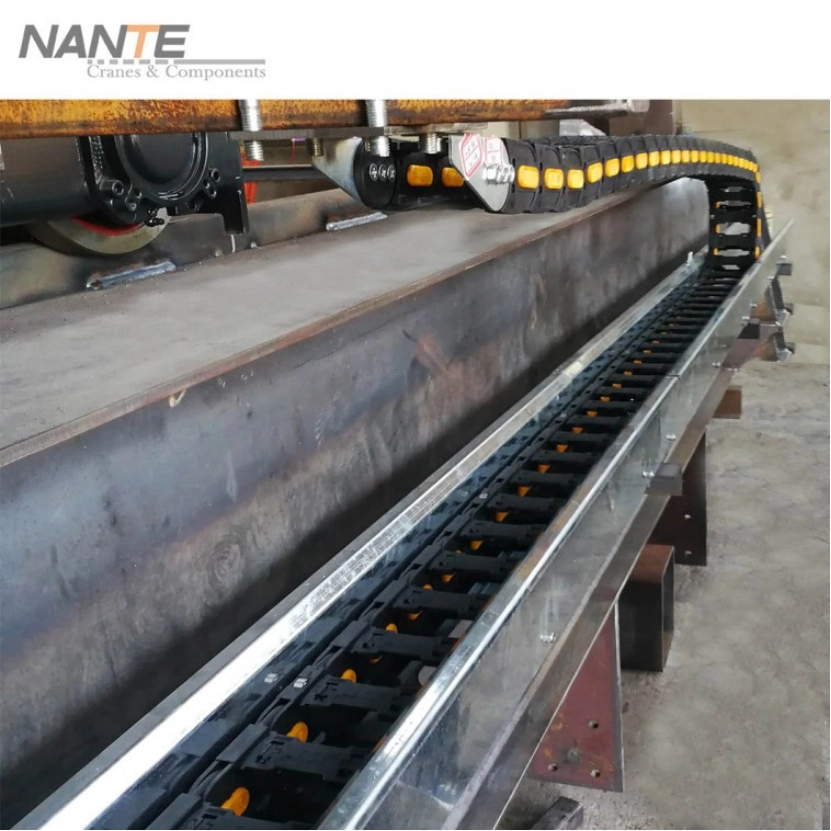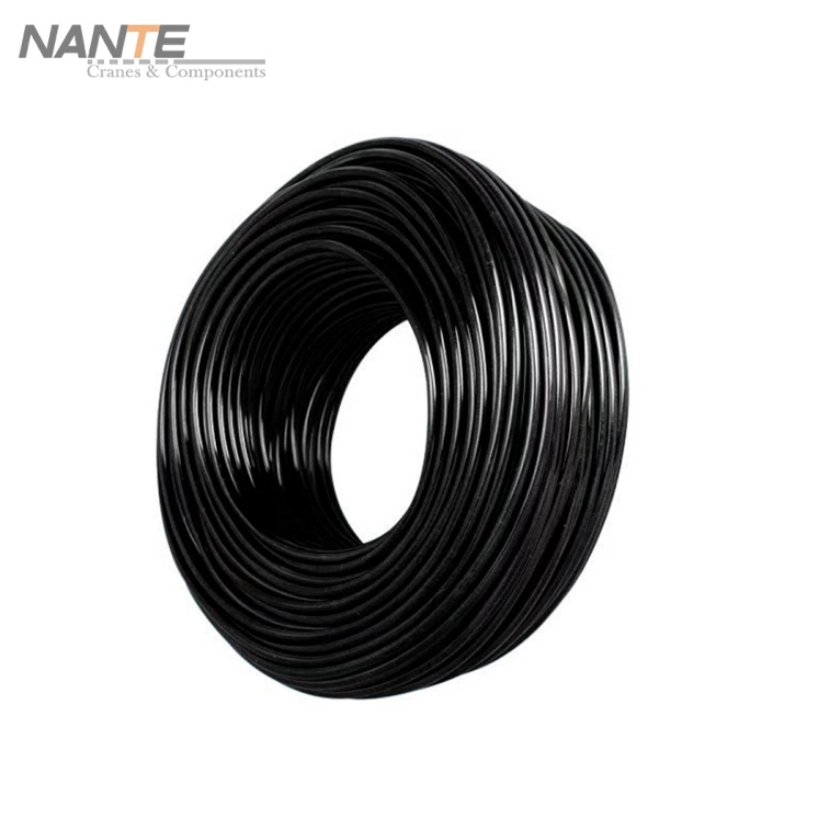IEC-Compliant Cables for Cranes: Essential Standards and Specifications for Safe Lifting Operations
Date: 2025-05-15 Share:
Every crane depends on the crane cable, an integral piece that promotes reliable and smooth working. Cables supply power, carry control signals, and withstand rough conditions. They are therefore of utmost importance in terms of reliability and quality. To meet these demands, crane cables must follow strict standards, such as those set by the International Electrotechnical Commission (IEC). With a variety of crane cable types available provided by Nante Crane , including flat cables, round cables, pendant cables, reeling cables, and energy chain cables, selecting the right one is key to ensuring safety and success in lifting operations.
Know Crane Cable Types and Uses
Cranes need various crane cables for various work and conditions. Purchasers can make their best choice for productive and safe work if they take these choices into account.
Flat Cables for Cranes
Flat cables, e.g., of quality crane cable suppliers, are used where flexibility is needed and in space-saving design. Festoon systems utilize flat cables. Festoon systems provide repetitive motion for gantry cranes and overhead cranes. Structural usage wear and tear is minimized through flat shape. This makes flat cables suitable for repetitive motion systems. Flat cables have flame retardant polychloroprene sheathing. The sheathing offers protection as well as reinforcement. They come in sizes 3, 4, 6, 8, 12, 16, or 24 cores. They come in sectional sizes of between 1.5mm² and 110mm². They can be applied to most of the crane systems, including light hoists, up to heavy cranes for industrial use. They have stable performance.
Round Cables for Versatile Crane Operations
Crane round cables, like RVV models, are another common choice for crane tasks. These cables are built for all-around flexibility. This makes them great for hoisting systems and other active uses. Their design includes superfine soft bare copper conductors. These allow crane electric cables to bend and twist often without breaking. They come in core counts of 2, 3, 4, or 7. These cables work well for mobile power needs in cranes. They deliver reliable performance in tough places, like building sites or factories.
Pendant Cables for Operator Control
Crane pendant cables are vital for crane control systems, especially for operator controls. Models like RVV2 pendant cables include wire ropes for extra tensile strength. They are made to handle frequent bending. These cables provide dependable signal transmission. This helps operators control cranes safely and accurately. They have core counts from 6 to 24. Crane pendant cables meet the needs of complex control systems. They ensure clear communication between the operator and the crane.
Reeling Cables for High-Movement Systems
For cranes needing fast movement, like those in port equipment, crane reeling cables are the best choice. Models like YFFB-PUR and RVV-PUR have a polyurethane sheath. This sheath resists UV rays, chemicals, and wear during constant bending. The cables have core counts of 3 or 4. Their section sizes range from 2.5mm² to 185mm². They are designed for motorized cable reel systems in gantry cranes. Their strong build handles the stress of high-speed movement. This makes them a dependable choice for tough tasks.
Energy Chain Cables for Automated Systems
In automated crane systems, energy chain cables, like YFFB-TLC and RVV-TLC, are essential. These cables work in energy chain systems. They handle complex movements in tight spaces. Their core counts range from 1 to 12. These crane electrical cables provide steady power and signal delivery. They are ideal for advanced manufacturing and logistics tasks. Their flexibility and toughness make them a key part of automated cranes. They support smooth performance.
Key Specifications for Crane Cables
The performance of crane cables depends on their materials, build, and ability to handle tough conditions. Meeting these standards ensures cranes work safely and well.
Material and Construction Standards
Top-quality materials are the base of a dependable crane cable. Superfine soft bare copper conductors, with 99.999% purity, offer great bendability and conductivity. Sheaths made of flame-resistant, self-extinguishing materials, like polychloroprene or polyurethane, add strength and safety. These materials help crane cables work well in harsh places, like building sites or ports. IEC compliance is a major mark of quality. It ensures crane cables meet global rules for safety and performance. Choosing IEC-compliant cables from trusted crane cables suppliers like Nante crane gives operators confidence. Their equipment will work reliably.
Core Count and Cross-Sectional Area
The core count and cross-sectional area of a crane cable affect its performance. Core counts range from 1 to 24. They decide how many signals or power lines the cable can carry. Section sizes range from 1.5mm² to 185mm². These sizes impact the cable’s ability to handle different power levels. For example, trusted crane cable manufacturers offer many crane cable types with various core counts and sizes. This lets operators pick the right cable for their needs. It could be for a small jib crane or a large overhead crane.
Environmental and Operational Durability
Cranes often work in tough settings. They expose cables to UV rays, chemicals, and extreme temperatures. Crane cables must resist these challenges. Features like wear resistance, tensile strength, and long-lasting performance ensure cables stay dependable during active tasks. For example, crane festoon cables and reeling cables are made for constant movement. Energy chain cables are built for complex, automated systems. Choosing cables suited for specific conditions, like high or low temperatures, is vital for long-term performance.
Safety Considerations in Crane Cable Selection
Safety is the top concern in crane tasks. Choosing the right crane cable is key to reducing risks.
Flame Resistance and Self-Extinguishing Properties
In high-risk places, like mining or heavy equipment tasks, flame-resistant and self-extinguishing sheaths are vital. These features stop fire dangers. They protect workers and equipment. Polychloroprene and polyurethane sheaths, used in crane electrical cables, offer these safety benefits. They ensure cables can handle accidental exposure to flames or heat.
Tensile Strength and Wear Resistance
Cranes involve frequent movement and heavy loads. These put stress on cables. Tensile strength and wear resistance are crucial to avoid cable failure. For example, crane pendant cables with wire ropes provide extra tensile strength. This makes them ideal for control tasks. Similarly, crane flat cables and reeling cables are built to resist wear. They ensure a long service life, even in tough conditions.
Compliance with Industry Standards
IEC standards ensure crane cables meet strict safety and performance rules. Compliance lowers the risk of electrical faults, downtime, and accidents. Choosing IEC-compliant crane cables from trusted crane cable manufacturers ensures safe and reliable tasks. This applies to global uses.
Choosing the Right Crane Cable for Your Application
Picking the right crane cable requires careful thought about task needs and environmental factors.
Assessing Operational Needs
Operators must check their crane’s needs. This includes load capacity, movement frequency, and environmental conditions. For example, flat cables for cranes are great for festoon systems. Crane reeling cables suit high-movement tasks. Knowing the crane type—whether it’s an overhead, gantry, or jib crane—helps choose the best crane cable type for the job.
Partnering with Reliable Crane Cable Manufacturers
Working with trusted crane cables suppliers ensures access to high-quality, IEC-compliant cables. These suppliers offer a wide range of crane cable types, from flat cables to energy chain cables. They are designed for strength and performance. Checking supplier credentials and product certifications provides confidence. It ensures compatibility with your crane system.
Optimize Your Crane Operations
The right crane cable is the foundation of safe and effective lifting tasks. Whether you need a strong crane flat cable for a festoon system or a flexible crane round cable for hoisting, the right choice can improve your crane’s performance and lifespan. Contact Nante Crane experts at trusted crane cable manufacturers for tailored advice. You can also check their product catalog to find the perfect crane cable for your needs. Don’t let cable failures slow your projects. Invest in high-quality, IEC-compliant crane cables today. Keep your operations running smoothly!

